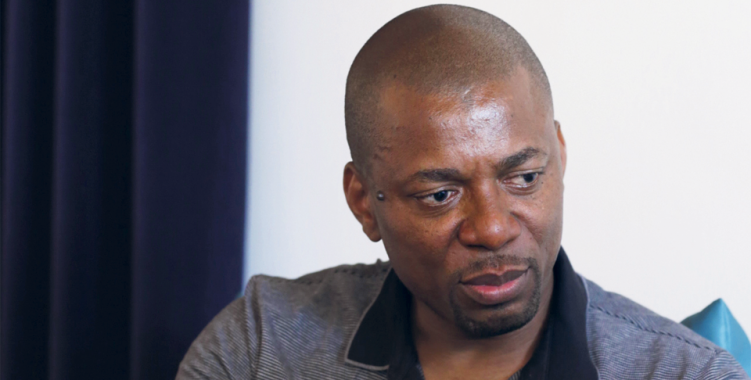"It is with some concern that I view this request for resignation by the current president of the Constitutional Court," the lawyer told Lusa.
"From the point of view of the robustness of the justice system, this shows that we are walking very badly, because these guarantees of independence, impartiality and irremovability, which are guarantees of judges, in principle it seems that they are not working very well," Benja Satula added.
The lawyer, author of the book "Money Laundering", pointed out that this is the third resignation request by Angolan court officials in a short period of time, recalling the cases of former Supreme Court Chief Justice Rui Ferreira, in October 2019, and Ombudsman Carlos Ferreira Pinto, in April this year.
Benja Satula hoped Manuel Aragão would finish his term, pointing out that by not doing so, "it makes it clear that if there is not enough serenity and sensitivity," Angola is "heading de facto towards a suicide and a capture of the institutions that, in principle, should perform the separation of powers in a democratic rule of law."
The Angolan also admitted that there may be "political or other pressure" that has resulted in these resignations, recalling that judicial officials are appointed by the President of the Republic".
"If people are nominated by himself and later come to put their positions at his disposal, this shows that there is not, in fact, a deliberate will, per se, to put an end to the functions. There is political or other pressure that has made these people put their positions at the disposal of the government," he said.
Benja Satula also said that he believes that the Angolan judicial system needs a "thorough reform."
"It would be laudable, to ensure that we have here the judicial power completely robust and unscathed from any pressure, of any order, of any kind, and then allow in fact people to reach those levels who do not also have 'woolly feet,'" he pointed out.
The lawyer added that sometimes the "influence mechanisms that exist" end up leading "people with some prior commitment" to these high places.
"The big problem that happens among us in Angola is that whenever a deep problem arises, we resort to external examples to say: look, you don't have problems, this happens like in that other country," he explained, adding that several Southern African Development Community (SADC) states are "still weak states."
"Because they are weak states, the influence and political power over magistrates is still felt. There is a role and a course here that the magistrates themselves must play," he concluded.
The president of the Constitutional Court, Manuel Aragão, expressed on Thursday to the President, João Lourenço, the desire to cease his functions, according to a note from the Civil House of the head of state that indicated that the request was accepted.
Manuel Aragão, appointed in November 2017 by the President to the post, has been in the news in recent days, as he distanced himself from "most of the decisions" contained in the ruling that approved the constitutional revision, warning of the "suicide of the democratic rule of law" by admitting the hierarchy between higher courts.
For Manuel Aragão, the existing judicial system in Angola "is diffuse, where there is a common jurisdiction headed by the Supreme Court and a specialized jurisdiction and each of these bodies is called, according to their nature, to respond to the issues submitted to them".
"In the rule of law, this structure and organization is determined in order to guarantee the realization and effectiveness of the other principles, such as the principle of the right to effective judicial protection," reads the explanation of vote of the presiding judge of the TC, who voted against the Constitutional Revision Law (CRL).
On Friday, João Lourenço promulgated the LRC, after it was approved the same day by the National Assembly, with opposition votes against and abstention.
The diploma passed the parliament with 149 votes in favor from the Popular Movement for the Liberation of Angola (MPLA), five against from independent deputies and 49 abstentions from the National Union for the Total Independence of Angola (UNITA), the Broad Convergence for the Salvation of Angola - Electoral Coalition (CASA-CE), the Social Renewal Party (PRS) and the National Front for the Liberation of Angola (FNLA).
On March 2 this year, the President proposed the punctual revision of the Constitution of the Republic of Angola, a process that culminated on Friday with the approval of the second deliberation of the Constitutional Revision Law project, under the terms of the Constitutional Court's ruling on the preventive monitoring of the Constitution.
At the presentation of the Constitutional Revision Law project, the Minister of State and head of the President of the Republic's Civil House, Adão de Almeida, said that with this revision, among other constitutional mechanisms, the political supervision of the executive by the National Assembly and the universalization of the right to vote to Angolan citizens living abroad were defined.
The independence of the National Bank of Angola, as well as the prohibition of the practice of acts that are not of mere current management by the executive branch at the end of its mandate will also be ensured in the revision.
According to Adão de Almeida, the margin of discretion of the President of the Republic will also be reduced, in relation to the calling of general elections, insofar as the second fortnight of August is defined as the period for the holding of elections, also noting the removal of the principle of gradualism from the Constitution.







